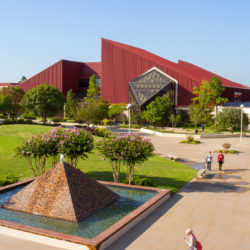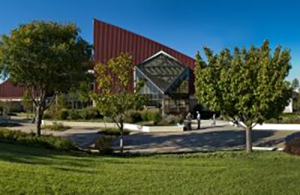OCCC Energy Conservation Program
OCCC Energy Conservation Program
OCCC Energy Conservation Program
OCCC Energy Conservation Program

Policy, Objectives and Goals
Oklahoma Senate Bill 1096 established the 20x2020 State Facilities Energy Program and directs all  State agencies and higher education institutions to achieve at least a 20 percent energy consumption savings by fiscal year (FY) 2020, as compared to the baseline established in FY 2012. State agencies are also directed to comply through the development and implementation of organizational behavior-based or performance-based energy conservation programs.
State agencies and higher education institutions to achieve at least a 20 percent energy consumption savings by fiscal year (FY) 2020, as compared to the baseline established in FY 2012. State agencies are also directed to comply through the development and implementation of organizational behavior-based or performance-based energy conservation programs.
In turn, the OCCC Board of Regents established Internal Operating Policy No. 135 on August 20, 2012. The policy states:
‘The Board of Regents of Oklahoma City Community College embraces energy conservation. The Board recognizes that energy conservation is dependent upon the efforts and cooperation of all members of the College community. The College President and his or her designees are authorized to develop and implement an organizational behavior-based or performance-based energy conservation program, including but not limited to the selection of a qualified vendor to assist in the development and implementation of the program. The Board authorizes the President and his or her designees to make every reasonable effort to conserve energy and natural resources within the exercise of sound financial management. The success of energy conservation efforts shall be the joint responsibility of the Board of Regents, the College administration, faculty, staff and students.
EnergyCAP Energy Management Software will be used to track and monitor energy and water consumption and costs. Even though water is becoming more of a concern in Oklahoma, it is not included in the mandated energy goals. The 20 percent reduction by FY 2020 applies only to electricity and natural gas consumption.
Best Energy Practices on Campus
As an energy consumer, you can make a difference by taking the following steps to reduce energy consumption in offices, classrooms, laboratories and work areas:
- Turn off lights when you leave the room.
- Turn off computers, monitors, speakers, and printers when not in use.
- Unplug all chargers when not in use.
- Keep doors and windows closed when heating, ventilation, and air- conditioning (HVAC) systems are in use.
- Close window blinds and angle them up when leaving for the day.
- If able, take the stairs instead of the elevator and open doors manually.
Energy Tips
Keeping doors closed between conditioned and unconditioned spaces will help cut down on energy waste:
- Doors are often left open after deliveries or to create a breeze through a building.
- Having these doors open when they are not in use increases the load on your building's HVAC system.
- Large loading doors are particularly problematic.
- If you identify doors that are often left open, educate your colleagues and consider posting signs to encourage them to shut the door on energy waste.
By making simple changes in our everyday lives, we can improve the planet we all share. To assist, the OCCC Energy Conservation Department provides these green tips to all interested in finding ways to protect the Earth. You can view our Green tips by clicking
here
.
Energy Savings
Every OCCC faculty, staff and student member is a key player in our energy conservation efforts to meet our goal of reducing energy consumption by 20 percent by the end of Fiscal Year 2012.
All of this was accomplished by simply turning off energy consuming systems and equipment when they were not needed!
Contacts and Links:
Executive Director of Facilities Management: Chris Snow
Phone: (405) 682-1611 Extension 7575
Email: csnow@occc.edu









